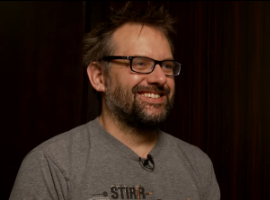InfoQ Homepage DevOps Content on InfoQ
-
Mitchell Hashimoto on Consul, Terraform, Atlas, Go as a Language for Tools
Mitchell Hashimoto explains how Vagrant, Consul, Terraform and Atlas help developers and ops to set up complex systems and keep them running. Also: Go as a language for tools.

-
Camille Fournier on Consensus Systems: ZooKeeper, Etcd, Consul
Camille Fournier explains consensus systems ZooKeeper, etcd, and Consul: how they work, what they do, how they differ from each other. Also: must-read papers in distributed programming.

-
Paul Fremantle on Security in Internet of Things
The Internet of Things is becoming a part of our lives right now - we are measuring health, we are connecting to our cars, we can open our front door while being half-way around the globe. And while we can benefit from all the sensors and actors around us, there is also a big risk of losing control and data. Paul Fremantle shares some knowledge on potential threads and what we can do about them.

-
Matthew Skelton on DevOps and Continuous Delivery Challenges
Matthew Skelton talks about the challenges to DevOps and Continuous Delivery adoption, what's the impact of microservices in this space, how to leverage ITIL, and DevOps team topologies.
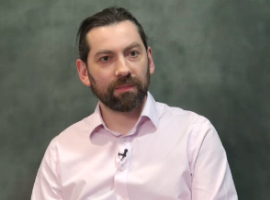
-
Jesper Richter-Reichhelm on the Game Development Process at Wooga
How do you create hits in mobile gaming? Jesper Richter-Reichhelm, Head of Engineering at Wooga, tells us about the challenges of mobile game development. How do you find the right story for a game, what technological base is the right one? And after all, what are the indications that a game might not be a hit which leads to stopping the project even right before global launch?
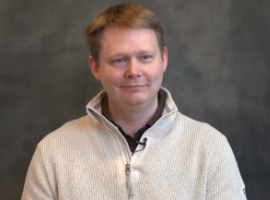
-
Rebecca Parsons on Microservices: Challenges, Benefits and Service Design
Rebecca Parsons, Thoughtworks CTO, on microservices: prerequisites, challenges and benefits. Also insights on designing services for scalability, handling failure and eventual consistency.
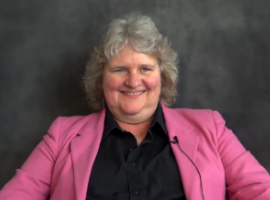
-
Jessica Frazelle on Working at Docker
Jessica Frazelle tells InfoQ what it's like to work at Docker open source, what are some of the goals for Docker Inc in the near future and the rational between Docker's clustering solution (Swarm).
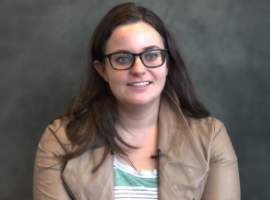
-
Luke Marsden on ZFS and the Docker Ecosystem
ClusterHQ founder Luke Marsden talks about ZFS, and why it's taken so long to become production ready on Linux. He then discussed how he's bringing ZFS based tools to the Docker ecosystem, and building a tech startup in the South West of England.

-
Jon McKay on Building Tessel Boards and What We Can Expect From Tessel Soon
The Internet of Things is right around the corner and it's very much about connected devices, sensors and gathering and leveraging data. The Tessel Board is programmable in JavaScript and makes it extremely easy to try out programming connected devices, send sensor data to the cloud or even control your elevator with a text message. And there's more to expect in the future, Jon tells us.

-
Jacob Fahrenkrug on Building a Secure Platform for the Smart Home
The Internet of Things is just around the corner and it will massively impact our lives. Most of the devices in our homes will become connected and collect data or react to certain events. Currently it is still uncertain, how personal data can be protected and leveraged for crowd sourcing and swarm intelligence at the same time. Jacob is sharing the ideas that his company Yetu has to clarify this

-
Eberhard Wolff on the Death of Java Application Servers
Eberhard Wolff explains his assertion that "Java application servers are dead". He describes application server deployment and monitoring model complexities and WAR and EAR deployment format deficits. In turn he promotes simpler and more standard compliant alternatives based on language agnostic tool stacks, while also acknowledging valid non-technical reasons that can prevent their adoption.

-
Jez Humble on Continuous Delivery and Lean Enterprise
In the last ten years we have seen the emergence of things like lean startup, continuous delivery, DevOps, and all these movements around how to not only build things correctly, but also around making sure to build the correct thing. Now it's time to help leaders in large enterprises to understand how to move faster and adapt to changing circumstances.
